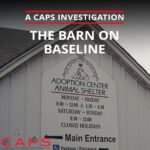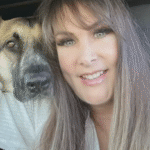
2016 Efforts and Accomplishments
Thank you! With your support, CAPS scored major victories in 2016 in our fight against pet shops and puppy mills. Here are some of the powerful achievements your donations have been generating.
Puppy Miller Pleads Guilty
CAPS is the only nonprofit to investigate inside puppy mills and document the Animal Welfare Act violations we find there. We use this evidence to support our legal and public outreach efforts. This year, we used undercover video from one such investigation to help nail a nefarious puppy miller: Gary Felts.
 Gary Felts has twice been included on a list of the nation’s worst puppy mill breeders.
Gary Felts has twice been included on a list of the nation’s worst puppy mill breeders.
The USDA fined him almost $19,000 for Animal Welfare Act violations, and he was required to disclose his financial assets in order to determine a reasonable payment schedule for his fines. But CAPS sent an investigator to his puppy mill in Iowa, and that lead to the discovery that he was hiding assets to avoid paying his fines.
We turned our evidence over to the U.S. Attorney, which proved critical in the government’s investigation.
Felts then plead guilty to one count of making false statements to the federal government. He avoided prison, but he received an additional fine, and the U.S. Attorney recommended that his USDA breeding license be revoked. CAPS will be working hard to make sure that happens.
Inside A Kitten Mill
A CAPS investigation also brought federal action against the largest kitten mill breeder in Nebraska. Kitten mills don’t receive as much attention as puppy mills; they are indoor facilities and much harder to access. But CAPS recorded the first-ever undercover video from inside a USDA-licensed kitten mill.
The facility owner, Claudia Obermiller, showed our investigator the shocking conditions of the animal pens. Litter boxes were overflowing with feces. Urine stained the floors. Fur and dirt were everywhere. The visibly distressed breeding cats had matted fur, infected eyes, filthy faces, and many cats sat inside their litter boxes – likely the softest surface they could find.  We took our evidence on Obermiller’s kitten mill to the USDA, and they fined her $5,000 and put her on probation. But we want stronger action. We will be demanding that the USDA permanently revoke Obermiller’s license. A video of our investigation is available here.
We took our evidence on Obermiller’s kitten mill to the USDA, and they fined her $5,000 and put her on probation. But we want stronger action. We will be demanding that the USDA permanently revoke Obermiller’s license. A video of our investigation is available here.
Going Viral
CAPS made a big push this year to further expand our digital and social media presence. Our video about Obermiller’s kitten mill sparked a widely shared article by the popular animal website The Dodo, and our blogs have been generating passionate conversations on Facebook and Twitter.
 We also created a video called “Jake’s Bucket List” about a dog rescued from a massive Oklahoma puppy mill that we investigated.
We also created a video called “Jake’s Bucket List” about a dog rescued from a massive Oklahoma puppy mill that we investigated.
The video has been viewed 1.4 million times in its various forms across different social media sites, and it was shared by celebrities Alicia Silverstone and Wilmer Valderrama.
Click here to watch “Jake’s Bucket List.”
 CAPS is still keeping a foot in the traditional media world as well. We’re working with ABC’s “Nightline” and Rolling Stone Magazine on upcoming pieces about puppy mills and pet shops. We also created new flyers and brochures to hand out at protests and events. These old fashioned boots-on-the-ground approaches are sometimes still the best.
CAPS is still keeping a foot in the traditional media world as well. We’re working with ABC’s “Nightline” and Rolling Stone Magazine on upcoming pieces about puppy mills and pet shops. We also created new flyers and brochures to hand out at protests and events. These old fashioned boots-on-the-ground approaches are sometimes still the best.
The New York Project
This year we continued our investigation of all 90 of the pet shops in New York City and nearby counties for a project with the N.Y. Attorney General. We’re working to stop a pattern where customers buy puppy mill animals, only to discover expensive medical or behavioral issues.
The customers often abandon these animals at shelters, and we don’t have to tell you the sad fate awaiting most animals at shelters.
CAPS also noticed that fraudulent rescue groups were appearing in New York. These groups obtain puppies from out-of-state shelters and flip them for profit in New York. The animals were sick and aggressive, so we worked with Suffolk County to pass the state’s first law requiring the inspection and regulation of animal rescue organizations. We helped pass stricter pet shop regulations in the county as well, and we’re crafting similar regulations in Westchester and Dutchess Counties.
Southern California
 CAPS has been working in California for years, creating pet shop ordinances in L.A., San Diego, and elsewhere that ban the retail sale of puppies, kittens, and rabbits. These laws are critical, because if pet shops stop selling animals, then puppy mills will lose their biggest buyer and go out of business.
CAPS has been working in California for years, creating pet shop ordinances in L.A., San Diego, and elsewhere that ban the retail sale of puppies, kittens, and rabbits. These laws are critical, because if pet shops stop selling animals, then puppy mills will lose their biggest buyer and go out of business.
In 2016, we expanded our efforts, investigating every pet shop in Southern California. We’re approaching local governments with our evidence and proposing new ordinances. We’ve already partnered with Riverside and Glendale (whose current law we created, but it needs amending to cover rabbits). Our undercover documentary about this push for California ordinances, and the consumer fraud we exposed, generated another viral article on The Dodo, as well as write-ups on Care2 and other sites.
You can see our Southern California documentary here.
Florida Ordinances
CAPS is behind a new pet shop ordinance in Sarasota County, FL. Our legal team helped draft the law, and we testified at the hearing. Thanks to this law, it’s now illegal for pet shops in Sarasota County to sell puppies and kittens. We are also seeking ordinances in Hillsborough County and elsewhere in the state.
Illinois Protests and Investigations
We’ve been holding weekly protests at the Happiness Is Pets pet shop in Arlington Heights, IL. During our peaceful demonstrations, we distribute literature and encourage customers to adopt an animal from a shelter. During most of our protests, no puppy sales take place.
 Our Illinois team also investigated a kennel that sold 535 dogs last year, even though their permit allowed for only 40 dogs onsite. The kennel was illegally breeding puppies, as well as selling animals obtained from an enormous puppy mill in Tennessee that CAPS investigated. We have turned our evidence over to the authorities, and they are taking action.
Our Illinois team also investigated a kennel that sold 535 dogs last year, even though their permit allowed for only 40 dogs onsite. The kennel was illegally breeding puppies, as well as selling animals obtained from an enormous puppy mill in Tennessee that CAPS investigated. We have turned our evidence over to the authorities, and they are taking action.
Keeping Pressure on the USDA
Putting focus on pet shops and puppy mills isn’t always enough, so CAPS continues to keep an eye on the U.S. Department of Agriculture (USDA). The USDA is supposed to protect animals at federally licensed breeding facilities, but they don’t.
Our evidence has shown that USDA inspectors are purposefully citing veterinary care violations at puppy mills as Indirect rather than Direct. Direct violations are those that directly impact the health and well-being of the animals. By citing these violations as Indirect, it allows puppy mill breeders to escape punishment and continue abusing animals. In 2010, due to our efforts, the USDA’s Office of Inspector General (OIG) issued a dramatic mandate for changes in the USDA’s inspection program. But the USDA is still resisting, so CAPS will meet with the agency in 2017 to insist that they comply. If they don’t, we’ll go to Congress and back to the OIG.
Plans for 2017
In addition to our upcoming meeting with the USDA, next year will also be very busy. Our ordinance work in New York, California, and Florida will continue and will be expanding into Massachusetts and Rhode Island; we’ll be running billboards in Rhode Island as well. Our undercover investigations unit will also keep targeting pet shops and puppy mills nationwide, and it will be undertaking a bold new project to expose government failure in a key puppy-producing state.





